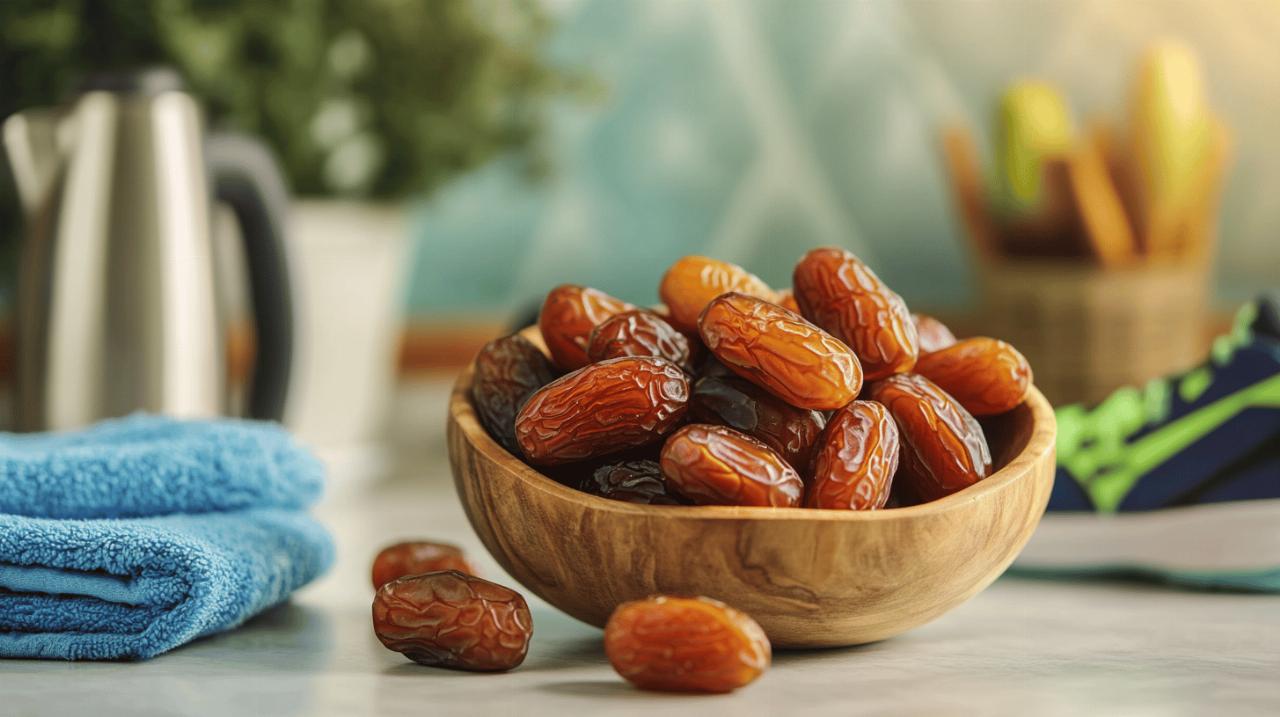For athletes seeking to elevate their sporting endeavours, the quest for optimal nutrition often leads down a path of elaborate supplements and meticulously calculated meal plans. Yet, amidst the modern complexity of sports nutrition, a humble fruit has quietly delivered profound benefits for centuries. Dates, those naturally sweet morsels hailing from sun-drenched groves, offer a remarkable blend of carbohydrates, minerals, and antioxidants that can truly transform athletic performance. Their convenience and nutritional density make them an invaluable ally for anyone committed to pushing their physical limits.
Dates as a Natural Energy Source for Athletic Endeavours
Rapid and sustained energy release during training sessions
When the body demands immediate fuel during intense physical activity, dates respond with exceptional efficiency. The natural sugars present in these fruits, including glucose, fructose, and sucrose, are swiftly digested and absorbed into the bloodstream, delivering a rapid surge of energy precisely when it is needed most. This characteristic makes dates an ideal choice for consumption before or during prolonged training sessions, where maintaining intensity is paramount. Unlike many commercial energy products that rely on refined sugars, dates provide this immediate energy boost whilst simultaneously offering a more sustained release. This dual action helps athletes avoid the dreaded energy crash that can derail a workout or competitive event. The carbohydrate content in dates ensures that the body receives a steady supply of fuel, enabling consistent performance throughout the duration of physical exertion.
Natural sugars versus processed alternatives for stamina
The debate surrounding natural versus processed energy sources has gained considerable traction within the athletic community, and dates stand as a compelling argument for nature's wisdom. Processed energy bars and synthetic gels often contain additives, preservatives, and artificial sweeteners that can cause digestive discomfort or erratic energy levels. In contrast, dates arrive in their most wholesome form, entirely free from additives and artificial components. This purity translates into a more predictable and reliable energy source that the body recognises and processes efficiently. Athletes who incorporate dates into their nutrition strategy frequently report improved stamina and endurance, particularly during extended efforts such as long-distance running or cycling. The natural composition of dates supports a gradual release of energy, helping to maintain blood sugar levels within an optimal range and preventing the sudden drops that can compromise performance. This steady fuel supply becomes especially valuable during competitions where consistency can mean the difference between triumph and disappointment.
Vital nutrients in dates that support athletic performance
Potassium and Magnesium for Optimal Muscle Function
Beyond their carbohydrate content, dates contain an impressive array of essential minerals that directly influence athletic capability. Potassium stands out as particularly significant, given its central role in muscle contraction and nerve transmission. During vigorous exercise, athletes lose substantial amounts of potassium through perspiration, and this depletion can lead to muscle weakness, cramping, and diminished performance. Dates serve as an excellent natural source of this vital electrolyte, helping to replenish stores and maintain proper muscle function throughout training and competition. In fact, dates contain more potassium than many commonly consumed fruits, making them a superior choice for athletes focused on preventing cramps and maintaining muscular efficiency. Magnesium, another mineral abundant in dates, works in concert with potassium to support muscle relaxation and energy production at the cellular level. This mineral is essential for converting food into usable energy and plays a crucial role in the synthesis of protein, which is fundamental for muscle repair and growth. The combination of potassium and magnesium found in dates creates a synergistic effect that enhances overall athletic performance and reduces the risk of common exercise-related issues such as cramping and fatigue.
Trace Minerals and Their Role in Recovery and Immunity
Whilst potassium and magnesium often receive the most attention, dates also provide meaningful quantities of other trace minerals that contribute to athletic success. Iron, for instance, is critical for oxygen transport throughout the body, ensuring that working muscles receive adequate oxygen during strenuous activity. Athletes, particularly those engaged in endurance sports, can be susceptible to iron deficiency, which manifests as fatigue and reduced performance. Regular consumption of dates helps support healthy iron levels, promoting better oxygen delivery and enhanced aerobic capacity. Copper, another trace mineral present in dates, aids in iron absorption and supports immune function, helping athletes maintain their health during intensive training periods when the immune system can become compromised. The B vitamins found in dates further enhance energy conversion, ensuring that the carbohydrates consumed are efficiently transformed into usable fuel. Additionally, dates contain powerful antioxidants that combat the oxidative stress generated during intense exercise. This anti-inflammatory support accelerates recovery, reduces muscle soreness, and helps protect cells from the damage that can accumulate over time with repeated physical stress.
Muscle recovery and digestive health through date consumption
Replenishing glycogen stores and reducing post-exercise inflammation
 The period immediately following a workout represents a critical window for recovery, and what an athlete consumes during this time significantly influences adaptation and readiness for subsequent training. Dates excel as a post-exercise food due to their ability to rapidly replenish glycogen stores depleted during physical activity. Glycogen, the stored form of carbohydrate in muscles and the liver, serves as the primary fuel source during moderate to high-intensity exercise. Consuming dates after a workout provides the necessary carbohydrates to restore these depleted reserves, setting the stage for effective recovery and ensuring that energy levels are adequate for the next session. When combined with a source of protein, dates enhance the body's ability to utilise amino acids for muscle repair and growth, supporting protein synthesis and facilitating gains in strength and endurance. The natural anti-inflammatory compounds present in dates further contribute to recovery by reducing the inflammation that occurs in response to the micro-damage caused by strenuous exercise. This reduction in inflammation can translate into decreased muscle soreness and a faster return to peak performance. Athletes who strategically incorporate dates into their post-workout nutrition often experience improved recovery times and greater consistency in their training schedules.
The period immediately following a workout represents a critical window for recovery, and what an athlete consumes during this time significantly influences adaptation and readiness for subsequent training. Dates excel as a post-exercise food due to their ability to rapidly replenish glycogen stores depleted during physical activity. Glycogen, the stored form of carbohydrate in muscles and the liver, serves as the primary fuel source during moderate to high-intensity exercise. Consuming dates after a workout provides the necessary carbohydrates to restore these depleted reserves, setting the stage for effective recovery and ensuring that energy levels are adequate for the next session. When combined with a source of protein, dates enhance the body's ability to utilise amino acids for muscle repair and growth, supporting protein synthesis and facilitating gains in strength and endurance. The natural anti-inflammatory compounds present in dates further contribute to recovery by reducing the inflammation that occurs in response to the micro-damage caused by strenuous exercise. This reduction in inflammation can translate into decreased muscle soreness and a faster return to peak performance. Athletes who strategically incorporate dates into their post-workout nutrition often experience improved recovery times and greater consistency in their training schedules.
Fibre Content and Its Impact on Nutrient Absorption for Athletes
Digestive health may not always receive the spotlight in discussions of athletic performance, yet it plays a fundamental role in ensuring that the body can effectively utilise the nutrients consumed. Dates are rich in dietary fibre, a component that promotes healthy digestion and regular bowel movements. For athletes who consume substantial quantities of food to meet their elevated energy demands, maintaining optimal digestive function is essential to prevent discomfort and ensure efficient nutrient absorption. The fibre in dates helps regulate the digestive system, supporting the growth of beneficial gut bacteria and enhancing the overall health of the gastrointestinal tract. This improved digestive efficiency means that the vitamins, minerals, and macronutrients consumed alongside dates are more readily absorbed and utilised by the body. Furthermore, the fibre content contributes to the sustained energy release that makes dates such an effective fuel source, as it slows the digestion and absorption of sugars, preventing rapid spikes and subsequent crashes in blood glucose levels. This steadying effect on blood sugar is particularly beneficial for endurance athletes who require consistent energy over extended periods.
Practical Ways to Incorporate Dates into an Athletic Diet
Simple pre- and post-workout snacking strategies
Integrating dates into an athletic nutrition plan is remarkably straightforward, thanks to their convenience and versatility. For optimal results, athletes should consider consuming two to four dates approximately thirty to sixty minutes before a training session or competition. This timing allows the natural sugars to be digested and absorbed, providing a readily available source of energy just as the workout begins. The portable nature of dates makes them an ideal choice for athletes on the move, eliminating the need for refrigeration or elaborate preparation. Following a workout, consuming two to three dates within thirty minutes can jumpstart the recovery process by replenishing glycogen stores and providing the carbohydrates needed to support muscle repair. Pairing dates with a source of protein, such as a handful of nuts or a serving of Greek yoghurt, creates a balanced post-exercise snack that addresses both carbohydrate and protein needs. For light training sessions, one to two dates may suffice, whilst more intense efforts lasting over forty-five minutes may warrant three to four dates to adequately fuel performance and recovery. Athletes should experiment with timing and quantities to determine what works best for their individual needs and preferences.
Creative Recipes and Meal Ideas for Training Regimes
Beyond simply eating dates whole, athletes can explore numerous creative ways to incorporate this nutritious fruit into their daily diet. Dates blend seamlessly into smoothies, adding natural sweetness and a boost of carbohydrates without the need for refined sugars or artificial sweeteners. Combining dates with ingredients such as bananas, oats, nut butter, and milk creates a nutrient-dense beverage that can serve as a pre-workout energiser or a post-workout recovery drink. Energy balls, made by blending dates with nuts, seeds, and perhaps a touch of cocoa powder, offer a convenient and portable snack that delivers both immediate and sustained energy. These homemade treats can be customised to individual taste preferences and nutritional requirements, providing a healthier alternative to many commercial energy bars. Dates can also be chopped and added to porridge, pancakes, or flapjacks, enhancing the nutritional profile of these staples whilst contributing a delightful natural sweetness. For those with a penchant for baking, dates can replace refined sugar in a variety of recipes, from muffins to biscuits, making it easier to enjoy treats without compromising nutritional goals. The versatility of dates ensures that athletes never grow bored with their nutrition plan, and the natural goodness they provide supports sustained performance and long-term health. Whether sourced from specialist providers such as Takarom or Ayrik Dates, which offer a range of Iranian varieties including Mazafati, Piarom, and Medjool, athletes have access to high-quality dates that meet rigorous food safety standards and deliver exceptional taste and nutrition.





